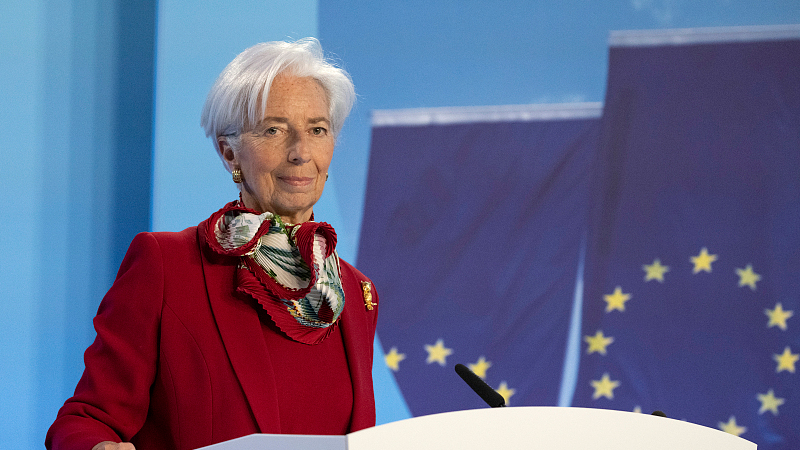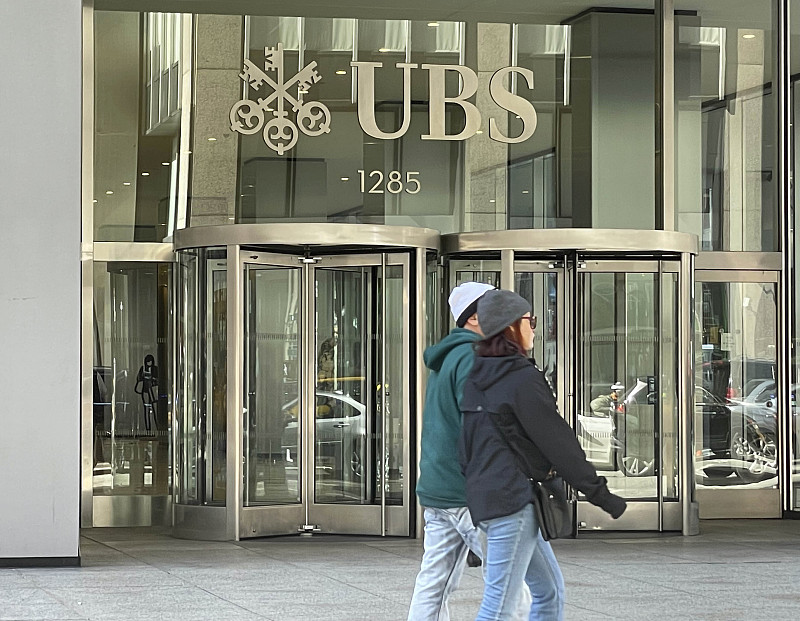
Christine Lagarde, President of the European Central Bank speaks at a press conference on the bank's current Governing Council meeting, in Frankfurt, Germany, March 16, 2023. /CFP
Christine Lagarde, President of the European Central Bank speaks at a press conference on the bank's current Governing Council meeting, in Frankfurt, Germany, March 16, 2023. /CFP
Editor's note: Freddie Reidy is a freelance writer based in London. He studied history and history of art at the University of Kent, Canterbury, specializing in Russian history and international politics. The article reflects the author's opinions, and not necessarily the views of CGTN.
On March 20, European Central Bank (ECB) President Christine Lagarde stated that the bank was "ready to respond as necessary" to retain economic stability within the bloc. Lagarde's words are a strong echo of the infamous statement by her predecessor Mario Draghi, who at the height of the 2012 European debt crisis declared that the ECB "would do whatever it takes" to ensure stability.
Lagarde herself was compelled to reiterate the phrase once more at the onset of an aggressive bond-buying policy necessitated by COVID-19. As such, the phrase has become something of a harbinger of economic headwinds.
The words of reassurance seem to have provided some solace to investors though as the Euro closed fractionally up against the dollar. What is of greater concern is efforts to contain the collapse of Silicon Valley Bank (SVB) in the U.S. and the plummeting value of Credit Suisse in Europe, which are widely viewed at a political level as immediate crises but also signs of a systemic ill that have been present for some time.
The ECB president was at pains to point to the limited exposure of European banks to the Credit Suisse debt write-off declaring it to be in the "millions" rather than "billions." Yet despite this shielding and the additional protection afforded by the post-2008 Basel III principles requiring sufficient capital reserves to act as a firebreak, markets were panicked.
A $54 billion intervention by the Swiss central back was not enough to defend the troubled Zurich giant, and while the bank had been underperforming for some years, the prospect of a takeover by UBS for $3.2 billion was somewhat unthinkable.
With the fate of Credit Suisse on firmer footing, global markets are set to recover lost ground in the coming days. However, the medium-term economic ailments remain. According to the Financial Times, eurozone lending contracted by 61 billion euros ($65.76 billion) between January and February, the biggest decline since 2013. The lesson from the Credit Suisse experience is that central bank intervention can only go so far in restoring both lender and market confidence.

The UBS Headquarters in New York City, U.S., March 21, 2023 . /CFP
The UBS Headquarters in New York City, U.S., March 21, 2023 . /CFP
Mindful of the ECB's limits, it is expected that interest rates for now have plateaued retaining additional firepower for further fallout. Inflation in the eurozone remains at 8.5 percent although there are hopes that this will subside as the immediate impact of the recent crisis in banking confidence is overcome. Risks remain though as core inflation – excluding food and energy – remains stubbornly high at 5.6 percent as productivity remains low.
In the search for opportunity amid instability, Lagarde was keen to delineate the regulatory environment from the U.S. where SVB and Signature back had just failed by identifying the Basel III policy adhered by many EU banks while simultaneously highlighting the prospect of different outcomes to ECB forced to intervene in a similar manner to the Swiss government:
"We are very confident that our banking sector is solid and well-capitalized, has strong liquidity ratios, and that the rules that apply in Europe… are not the rules that have been applied by other institutions, notably by the Swiss authorities… Switzerland does not set standards in Europe."
While Credit Suisse may now be contained and a short-term escalation arrested, the longer term impact of the radical nature of the Swiss government's intervention could yet be felt with a vicious cycle set in motion.
One of the fundamental reasons leading to Credit Suisse's acquisition was a refusal of its chief investor, Saudi Bank, to add further capital to shore up a share price in free fall. The decision to wipe out $17 billion in Credit Suisse bonds as part of the UBS takeover in favor of shareholders sent ripples across markets with the ECB again seeking to distance itself from its Swiss counterpart, "common equity instruments are the first ones to absorb losses." The risk is that such high-handed measures risk a major erosion in market confidence reflected in a reluctance of major banks to lend money, favoring protection of the elevated capital necessitated by Basel III, this in turn contributing to elevated core inflation as productivity stalls.
The challenge for Lagarde and the ECB will be in demonstrating that measured manipulation of interest rates is enough to ensure stability while curbing inflation and instilling market confidence in its willingness to "respond if necessary."
(If you want to contribute and have specific expertise, please contact us at opinions@cgtn.com. Follow @thouse_opinions on Twitter to discover the latest commentaries in the CGTN Opinion Section.)